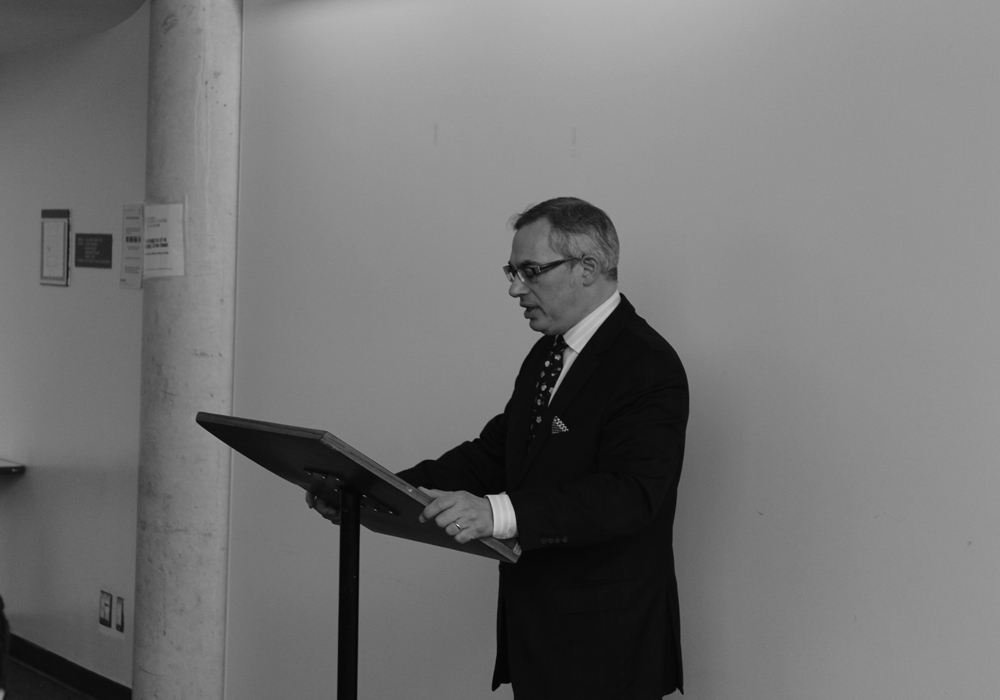Kanchi Uttamchandani, Staff Writer
Eleanor Higginson, Staff Writer
Featured image courtesy of Shai H. Reef
Conservative Party of Canada foreign affairs critic, Tony Clement, was on campus sharing his thoughts on the recent anti-Boycott, Divestment and Sanctions motion that was presented in the House of Commons a few weeks ago.
The motion was introduced by Clement and Michelle Rempel, MP for Calgary Nose Hill, calling for rejection of the BDS movement, which they argue demonizes and delegitimizes the state of Israel.
“We asked the House of Commons to condemn the essence or intellectual proposition of BDS,” says Clement.
“The fact the motion was approved is an expression of and a forceful reminder of Canadian values.”
“Yet, I want to make one point crystal clear. We do not intend to curtail anyone’s freedom of expression as long as it is within the limits of peaceful revolution.”
“I would even die for freedom of expression,” he says.
“But at times, it gets very binary, that is, in order to exercise your democratic will, you have to take a ‘yes’ or ‘no’ stand on difficult issues.”
“This is not a condemnatory motion, nothing prevents those with contrary views and their support is not criminalized. It is just that the BDS movement is on the wrong track. I think it is very simplistic and politically and historically incorrect to blame Israel for the Middle East conflict. By doing so, you don’t arrive at a peaceful and long lasting solution. This is true even from a practical analysis.”
Clement further explained, the problem with BDS is how it singles out Israel, which does nothing to assist in the Middle East peace process, or in the two-state solution.
Instead, it creates a division on campuses and marginalizes those students who are pro-Israel, he says.
Clement emphasizes passing the motion is a clear signal of majority support from Parliament. It is still a hotly contested topic and a growing counter debate has already been launched.
“University students must feel free to express their voices, free from any intimidation,” he says.
Clement says he often gets asked questions about how people can promote open dialogue on campus to change campus culture from intimidation to freedom of speech and expression.
“I see it as a form of hypocrisy that people who claim that their rights are infringed upon are ironically the first ones to shut down dissenting views,” he says.
“University should be a free marketplace of ideas where we can have open debates.”
Zachary Zarnett-Klein, Hillel at York, was pleased to host a group of students of diverse backgrounds and opinions to hear from Clement.
“He clearly articulated the distinction between valid criticism of the State of Israel and the BDS movement’s mission to delegitimize the Jewish state in its entirety,” he says.
“We believe that our educational experience is more valuable when we have the opportunity to debate and question each other’s ideas in a respectful context. I am proud that we were able to have a respectful Q&A session with MP Clement as part of our event, in which many different points of view were expressed. Our entire campus would benefit from a more tempered rhetoric, allowing for more open, respectful dialogue.”
Tweet us, @excaliburYU


